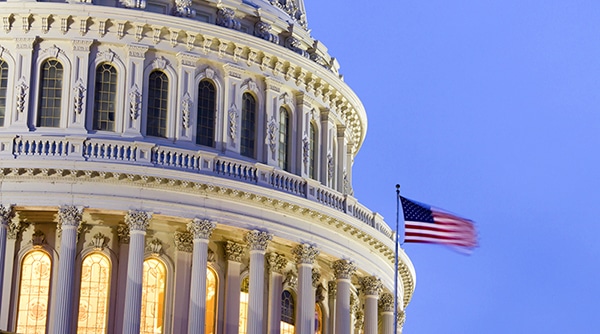
Do I detect a little hope and joy in the air?
As many of you know, the Alliance for Aging Research put our heart and soul into increasing funding at the National Institutes of Health (NIH) this year. Among the many ways we did this was releasing a video that features real patients and their loved ones.
Well, Congress gave Americans a holiday miracle this week and reached a deal on a $1.1 trillion omnibus spending bill for FY 2016. The deal includes $32.084 billion for the National Institutes of Health (NIH)—a $2 billion increase. This is the largest increase in the NIH’s funding since 2003.
Additionally, the National Institute on Aging (NIA) received a $400 million boost for FY 2016 from its FY 2015 level—$350 million of which is directed to Alzheimer’s disease and related dementias research, along with an additional $50 million for aging research—to raise its total funding to $1.6 billion. The Alzheimer’s-directed funding is a nearly 60 percent jump from FY 2015. Funding for the BRAIN Initiative, an NIH project aimed at increasing understanding of the human brain, increased by $85 million.
Those of us at the Alliance express our special gratitude to Senate Appropriations and LHHS Subcommittee Chairmen Cochran and Blunt, Vice Chairwoman Mikulski, and Ranking Member Murray as well as House Appropriations and LHHS Subcommittee Chairmen Hal Rogers and Tom Cole and Ranking Members Lowey and DeLauro.
There’s more good news to report. We also advocate for U.S. Food and Drug Administration (FDA) funding, which did well in securing $4.7 billion for FY 2016. This is an increase of $133 million over FY 2015 levels and includes an extra $2.4 million for the Precision Medicine Initiative and an additional $5 million for drug safety.
Family caregiver programs also gained some much-needed extra support. Lifespan Respite will receive an additional $1 million for a total of $3.36 million, and the National Family Caregiver Support Program will receive an increase of $5 million for a total of $150.6 million.
On the medical device tax repeal front, which the Alliance has steadfastly supported, the deal included a two-year delay of the tax.
Lastly, the Alliance also had success on atrial fibrillation (AFib) and report language that we had requested. The language in the omnibus bill requests a CDC Vital Signs entry and Healthy People 2020 goals on AFib. It also calls for the NIA to obtain technical assistance on its PCORI falls prevention initiative from the National Institute of Neurological Disorders and Stroke (NINDS) and the National Heart, Lung, and Blood Institute to inform treatment decisions on AFib-related stroke. While the language we supported in the FY 2016 Labor HHS Appropriations Bill is not explicitly mentioned in the Omnibus Appropriations Bill released this morning, there is a statement which indicates that the language will stand.
What an inspiring way to end 2015! These victories will save lives and improve the health and well-being of countless older Americans.
Yep, hope and joy.






